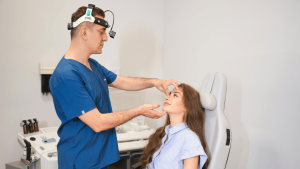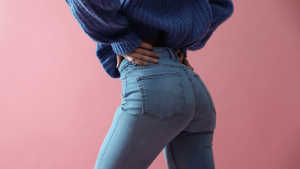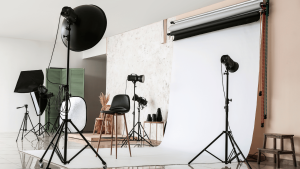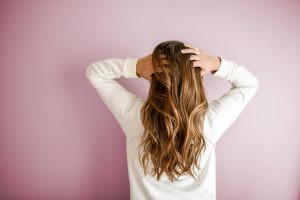Technology has reshaped everything from the way we shop to how we sleep—and now, it’s transforming skincare. AI has quietly become the new beauty expert, decoding complex skin concerns and designing skincare routines that feel personal. From analysing selfies to creating tailor-made serums, is it possible that algorithms know our skin better than we do?

Per the market intelligence research report by InsightAce Analytic, the global AI in Beauty and Cosmetics market size is expected to reach US$ 13.34 Billion in 2030, with a CAGR of 19.7% from 2021 to 2030. The beauty and skincare sector has witnessed a massive upsurge in Artificial Intelligence in recent years and there is an influx of skincare apps that dispense advice and tailor-made skincare products based on our individual data.
Loreal has introduced a beauty tech device that delivers personalised on-the-spot skincare and cosmetic formulas, dispensed in a perfectly portioned, single dose at the top of the device for easy, clean application. By harnessing the power of AI, the level of personalisation will be optimised over time as the system gathers more data about the customer’s skin and personal preferences. The device features a detachable mirrored top so that our customers can take a dose on-the-go. Sounds like a fairytale? Let’s take a look at how technology is informing our skincare routine.
From Guesswork to Precision: How AI Is Transforming Skincare
For decades, skincare was mostly about trial and error—trying what our favourite influencer used or what worked for a friend. But skin, like fingerprints, is personal. What works for one person might do nothing for another. That’s where AI steps in. Using facial recognition, image analysis and machine learning, AI can assess our skin type, detect issues like dryness or pigmentation, and suggest the perfect products to match our unique needs. L’Oréal’s AI-powered Skin Genius tool, for instance, analyses a selfie to create a full-fledged skincare routine. The beauty giant estimates that AI-powered personalised recommendations have helped customers find products 30% faster and with better satisfaction. The result? Skincare that finally feels smart and made for you.
RELATED ARTICLES
Personalised Beauty Routines: The Power of Data and Algorithms
The beauty of AI lies in its ability to learn. By collecting data from our selfies, location, environment, sleep patterns and diet, AI can identify what our skin needs—and when it needs it. For example, Atolla, a brand that turned AI into a skincare lab in your bathroom. Users complete a quick analysis, send data to the system, and receive a custom serum formulated to their skin’s exact condition. When Function of Beauty acquired Atolla, it signalled how fast the industry is moving toward precision beauty powered by algorithms. Similarly, Proven Skincare built its line on the Skin Genome Project, an AI database analysing over 20,000 ingredients and 4,000 clinical studies. Each product is backed by science and adjusted according to an individual’s environment and lifestyle. These innovations mean skincare isn’t reactive anymore—it’s predictive. Our products evolve with us.
Smart Devices and Apps: Our Digital Skincare Assistants
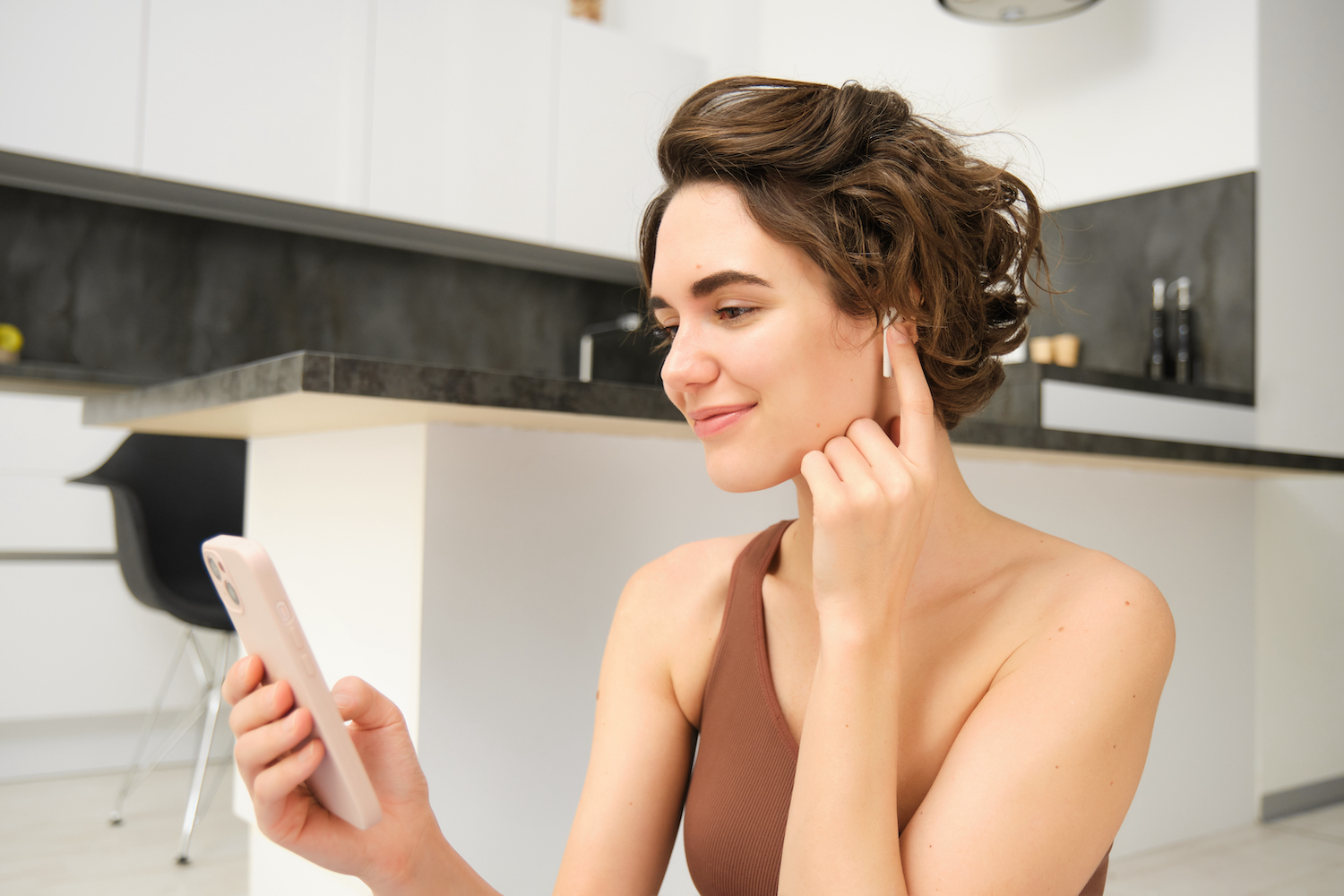
The next time we look in the mirror, it might just be smarter than we think. Smart beauty devices have become the must-have companions for the modern skincare lover. The HiMirror, for instance, scans our face daily and tracks changes in wrinkles, pores, and pigmentation. It then recommends targeted skincare adjustments. The FOREO Luna uses sensors to measure hydration and adjusts cleansing intensity based on our skincare needs that day. Meanwhile, the OPTE Precision Wand scans our skin and dispenses pigment serum to even out skin-tone—like having a makeup artist and dermatologist in one gadget. These devices turn skincare into an interactive experience, making it both fun and data-driven.
Some of the world’s biggest beauty brands are already proving how powerful AI can be! L’Oréal’s Perso Device is a sleek, countertop machine that makes personalised moisturisers and foundations at home based on daily weather, air quality, and skin data. Neutrogena Skin360 App uses our smartphone camera to assess fine lines, texture, and pores, providing a Skin Score and tailored product advice. And Shiseido’s Optune is a subscription-based AI device that dispenses skincare formulas adapted to our environment and lifestyle—down to our stress levels.These brands are transforming beauty routines from a one-size-fits-all approach into a personalised ritual backed by technology.
Consumer Experience: How AI is Redefining Beauty Engagement
AI isn’t only redefining how we care for our skin—it’s changing how we shop for beauty. Retailers like Sephora and Ulta Beauty now use AI to deliver personalised shopping experiences. Sephora’s “Colour iQ” scans skin tone and recommends matching foundation shades. Ulta’s AI-driven recommendation engine curates entire product routines based on past purchases and skin analysis. This level of customisation makes shopping feel personal, eliminating the endless guessing game in beauty aisles. Augmented Reality integrations—like virtual try-ons—let consumers visualise results instantly, blurring the line between skincare and technology.
AI in Beauty: Van Innovation Meet Sustainability?
The next phase of AI skincare is all about sustainability and data science. Expect more innovations combining genetics, microbiome data, and wearables that monitor skin health in real time. Imagine a patch that analyses our hydration level throughout the day and signals when our skin needs moisture—or a system that reformulates our moisturiser based on hormonal changes. AI will make all this possible. It’s not just about vanity. By optimising formulations and predicting needs, AI can also reduce waste—less product experimentation, fewer returns, and more conscious consumption. As the industry evolves, AI will become a quiet force behind the scenes—making skincare more sustainable, inclusive, and truly personal.
Conclusion: The Human Touch in an AI-Powered Mirror
The rise of AI in skincare marks a shift from generic routines to intelligent rituals that understand individuality. Whether through a smart mirror or a personalised serum, technology is putting the power of dermatological precision in everyone’s hands. AI won’t replace human intuition—but it’s redefining how we connect with our skin. The future of beauty is no longer about chasing perfection. It’s about understanding ourselves—one algorithm, one routine, one radiant face at a time.

Jasmeen Dugal is Associate Editor at FashionABC, contributing her insights on fashion, technology, and sustainability. She brings with herself more than two decades of editorial experience, working for national newspapers and luxury magazines in India.
Jasmeen Dugal has worked with exchange4media as a senior writer contributing articles on the country’s advertising and marketing movements, and then with Condenast India as Net Editor where she helmed Vogue India’s official website in terms of design, layout and daily content. Besides this, she is also an entrepreneur running her own luxury portal, Explosivefashion, which highlights the latest in luxury fashion and hospitality.







